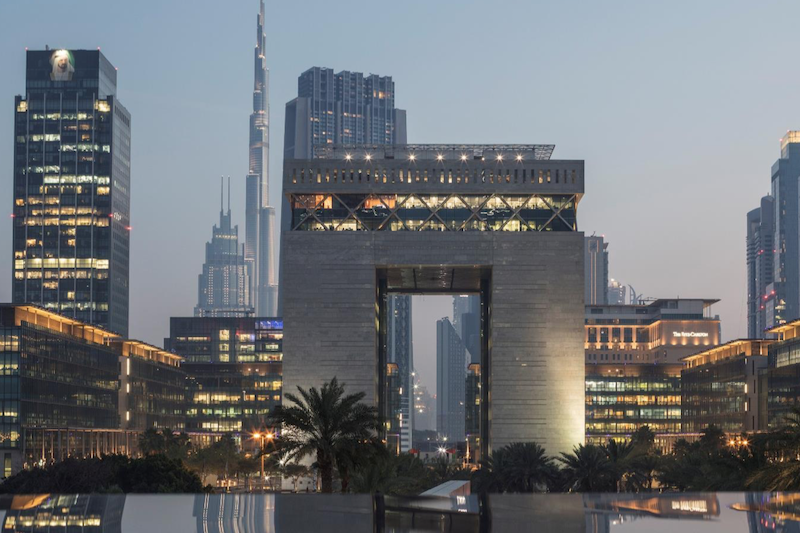By Danielle Lobo
|
The Authors
Danielle Lobo Danielle is a corporate/commercial lawyer with considerable experience in a wide range of corporate matters including private equity transactions, mergers and acquisitions, joint ventures, restructurings and reorganisations. She advises vendors, trade purchasers and management on both the sale and purchase of companies, as well as on private equity investments. Danielle is a member of the Law Society of Scotland. She holds an LLB (Hons.) from the University of Aberdeen, Scotland. Prior to joining the firm, she trained at and was a solicitor with a global firm in Scotland |
Background
On 23 September 2018 Federal Decree-Law 19 of 2018 regarding Foreign Direct Investment (the FDI Law) was issued. Through the FDI Law the foundations were laid for the relaxation of the 51 per cent UAE national ownership requirement for companies incorporated onshore in the UAE. Whilst the FDI Law set out a negative list of 13 activities for which an increased level of foreign ownership would not be permissible, it did not provide the positive list of activities for which an increased level of foreign participation would be allowed. Instead, the FDI Law stated that a resolution would be issued specifying a positive list along with the Emirate(s) within which a foreign direct investment company (FDI Company) may be established. The FDI Law also stated that this resolution would address the following matters:
- the legal form of the FDI company;
- the permitted percentage ownership by the foreign investor (whether 100 per cent or a lower percentage);
- the minimum share capital of the FDI Company;
- any restrictions and conditions including relating to the Emiratisation of the workforce of the FDI Company; and
- the incentives available to the FDI Company.
The FDI Law also stipulated that the relevant licensing authority would specify the conditions and procedures required to establish and licence an FDI Company.
Subsequent to the issuance of the FDI Law, we reported in our Legal Alert dated 17 July 2019, that a statement had been issued by the Prime Minister confirming that a positive list of activities under the FDI Law had been approved. The positive list was published in the local press however until now it had not been included in the Official Gazette.
Cabinet Resolution No. 16 of 2020 (the Resolution)
The Resolution was published in the Official Gazette dated 31 March 2020 and is stated to come into effect on the day following its publication. Pursuant to the Resolution, a positive list of activities has been approved. The positive list contains 122 activities in the agricultural, manufacturing and services sectors. The Resolution also stipulates the following:
- that the FDI Company may be a limited liability company or a private joint stock company (including a single shareholder limited liability company or private joint stock company);
- the minimum share capital of the FDI Company (which is linked to the activity that it will conduct);
- the restrictions and conditions attached to certain activities (such as the obligation to utilise modern technology); and
- that the minimum level of Emiratisation of the workforce of an FDI Company will be determined by the Ministry of Human Resources and Emiratisation.
Ministry of Economy – Foreign Investor Guide
The Ministry of Economy has also published a detailed guidance in the form of a Foreign Investor Guide which, amongst other things, sets out the step by step process for the incorporation of an FDI Company in the UAE. The guide also specifies that it is possible for an existing company to apply to be converted into an FDI Company. Helpfully, the guide also includes the relevant licensing application form. ■
****
Afridi and Angell’s corporate department has extensive experience in advising on foreign direct investment and corporate restructuring matters. Should you have any questions with respect to the Resolution or the implications of the Resolution on your business, please contact the author or your usual Afridi & Angell contact.
| Afridi & Angell
Founded in 1975, Afridi & Angell is a full-service UAE law firm in its fifth decade at the forefront of the legal community. From the beginning, our hallmarks have been a commitment to quality, unsurpassed knowledge of the law and the legal environment, and crafting of innovative business solutions. Licensed in the three largest Emirates of Abu Dhabi, Dubai and Sharjah as well as the Dubai International Financial Centre, our practice areas include banking and finance; corporate and commercial law; arbitration and litigation; construction; real estate; infrastructure projects; energy; project finance; maritime (wet and dry); and employment. We advise local, regional and global clients ranging in size and sophistication from start-ups, sole proprietorships, family-owned businesses, entrepreneurs and investors to some of the world’s largest public and private companies, governments and quasi- government institutions. We attract and retain clients with our dedication to practical guidance focused on their business needs supported by decades of experience here in our home jurisdiction, the UAE. Afridi & Angell is the exclusive member firm in the UAE of top legal networks and associations, most notably Lex Mundi, the world’s leading network of independent law firms, and World Services Group. |
| Afridi & Angell’s inBrief provides a brief overview and commentary on recent legal announcements and developments. Comments and opinions contained herein are general information only. They should not be regarded or relied upon as legal advice.
© 2020, Afridi & Angell |



